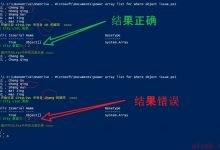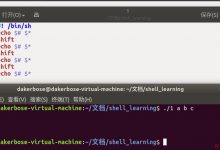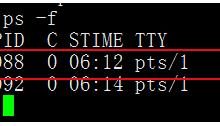有些特殊情况下需要实现将系统内普通用户限定在指定目录下,并且只能使用系统管理员设定的命令。lshell就是实现这样功能的一个神器。
lshell提供了一个针对每个用户可配置的限制性shell,lshell的配置文件非常的简单,可以和
ssh
的
authorized_keys
或者
/etc/shell
、
/etc/passwd
耦合使用,lshell可以很容易的严格限制用户可以访问哪些命令。
项目地址: https://github.com/ghantoos/lshell
lshell安装
RHEL、CentOS
$ yum install lshell #EPEL源
Debian、Ubuntu
$ apt-get install lshell
lshell使用
-
lshell语法格式
$ lshell --helpUsage: lshell [OPTIONS] --config <file> : Config file location (default /etc/lshell.conf) #指定配置文件 --log <dir> : Log files directory #指定日志目录 -h, --help : Show this help message #显示帮助信息 --version : Show version #显示版本信息
-
lshell配置
Linux下配置文件为
/etc/lshell.conf
# lshell.py configuration file## $Id: lshell.conf,v 1.27 2010/10/18 19:05:17 ghantoos Exp $[global]## log directory (default /var/log/lshell/ )logpath : /var/log/lshell/## set log level to 0, 1, 2, 3 or 4 (0: no logs, 1: least verbose,## 4: log all commands)loglevel : 2## configure log file name (default is %u i.e. username.log)#logfilename : %y%m%d-%u#logfilename : syslog## in case you are using syslog, you can choose your logname#syslogname : myapp[default]## a list of the allowed commands or \'all\' to allow all commands in user\'s PATHallowed : [\'ls\',\'echo\',\'cd\',\'ll\']## a list of forbidden character or commandsforbidden : [\';\', \'&\', \'|\',\'`\',\'>\',\'<\', \'$(\', \'${\']## a list of allowed command to use with sudo(8)#sudo_commands : [\'ls\', \'more\']## number of warnings when user enters a forbidden value before getting ## exited from lshell, set to -1 to disable.warning_counter : 2## command aliases list (similar to bash’s alias directive)aliases : {\'ll\':\'ls -l\', \'vi\':\'vim\'}## introduction text to print (when entering lshell)#intro : \"== My personal intro ==\\nWelcome to lshell\\nType \'?\' or \'help\' to get the list of allowed commands\"## configure your promt using %u or %h (default: username)#prompt : \"%u@%h\"## a value in seconds for the session timer#timer : 5## list of path to restrict the user \"geographicaly\"#path : [\'/home/bla/\',\'/etc\']## set the home folder of your user. If not specified the home_path is set to ## the $HOME environment variable#home_path : \'/home/bla/\'## update the environment variable $PATH of the user#env_path : \':/usr/local/bin:/usr/sbin\'## add environment variables#env_vars : {\'foo\':1, \'bar\':\'helloworld\'}## allow or forbid the use of scp (set to 1 or 0)#scp : 1## forbid scp upload#scp_upload : 0## forbid scp download#scp_download : 0## allow of forbid the use of sftp (set to 1 or 0)#sftp : 1## list of command allowed to execute over ssh (e.g. rsync, rdiff-backup, etc.)#overssh : [\'ls\', \'rsync\']## logging strictness. If set to 1, any unknown command is considered as ## forbidden, and user\'s warning counter is decreased. If set to 0, command is## considered as unknown, and user is only warned (i.e. *** unknown synthax)#strict : 1## force files sent through scp to a specific directory#scpforce : \'/home/bla/uploads/\'## history file maximum size #history_size : 100## set history file name (default is /home/%u/.lhistory)#history_file : \"/home/%u/.lshell_history\"
-
lshell的配置文件详解
配置文件一共有四个小节
[global] -lshell的系统配置(只能有一个)
[default] -lshell的默认用户配置(只能有一个)
[foo] -指定UNIX的系统用户”foo”的特别的配置
[grp:bar] -指定UNIX用户组”bar”的特别的配置当加载参数的时候遵循以下顺序
1.User configuration
2.Group configuration
3.Default configurationlogpath
日志路径(默认是/var/log/lshell/)loglevel
日志记录级别,0, 1, 2, 3 or 4 (0: no logs -4: logs everything)logfilename
如果设置成syslog关键字,则表示日志记录到syslog中
如果设置成一个文件名, e.g. %u-%y%m%d (i.e foo-20091009.log):%u -username
%d -day [1..31]
%m -month [1..12]
%y -year [00..99]
%h -time [00:00..23:59]syslogname
如果你打算记录进syslog中,则要设置你的syslog名称,默认是lshell[default]或者[username]或者[grp:groupname] 三个小节可用的配置项
aliases
命令别名allowed
一个允许执行的命令列表,或者设置成all,则允许在user PATH中的所有命令可用allowed_cmd_path
一个路径组成的列表,所有在路径中的可执行文件都被允许env_path
更新用户的环境变量PATHenv_vars
设置用户的环境变量forbidden
一个非法字符或者命令组成的列表history_file
history的文件名,%u -username (e.g. ‘/home/%u/.lhistory’)history_size
history文件记录的maximum size(in lines)home_path (deprecated)
默认是$HOME,不赞成使用,下一版会取消。%u -username (e.g. ‘/home/%u’)intro
在登陆时打印出入门信息login_script
用户登陆时执行的脚本passwd
指定用户的密码(默认为空)path
严格限制用户可以去的系统路径,可以使用通配符(e.g. ‘/var/log/ap*’)prompt
设置用户的prompt格式(default: username)
%u -username
%h -hostnamescp
允许或者禁止使用scp连接(0禁止、1允许)。scpforce
强制文件通过scp传输到一个特定目录scp_download
允许或者禁止使用scp下载(0禁止、1允许)。scp_upload
允许或者禁止使用scp上传(0禁止、1允许,默认为1)。sftp
允许或者禁止使用sftp连接(0禁止、1允许)。sudo_commands
一组命令组成的列表,用户可以执行sudotimer
会话维持的秒数strict
日志严格记录,如果设置成1,任何unknow的命令都被禁止,并且降低用户警告数,如果设置成0,unknow命令只是警告。 (i.e. * unknown synthax)warning_counter
警告次数,如果用户达到该警告次数,则会被强制退出lshell,设置成-1,则禁止计数。
-
lshell下始终可使用的指令
清屏clear打印可用命令help, ?打印命令历史history列出所有允许和禁止的路径lpath 列出所有允许sudo的命令lsudo
lshell实例
为了记录用户日志,首先需要创建相关目录
$ groupadd --system lshell$ mkdir /var/log/lshell$ chown :lshell /var/log/lshell$ chmod 770 /var/log/lshell
添加test用户
$ useradd test -d /home/test -s /usr/bin/lshell
然后增加test用户到lshell group
$ usermod -aG lshell test
改变test用户默认shell,使用lshell作为默认shell
$ chsh -s /usr/bin/lshell test
修改配置文件让test用户只能使用受限命令
[test]allowed : [\'ls\',\'echo\',\'cd\',\'ll\'] ##允许使用的命令home_path : \'/home/test\' ##设置用户的家目录path : [\'/home/test\',\'/tmp\'] ##限制用户的目录
home_path
和
path
注释掉则限制用户只能访问自己的家目录及其子目录。如果需要能访问其他目录,则需要在path中加入相应的目录,当前设置下用户可以访问家目录及其子目录,也可以访问
/tmp
目录及其子目录,但不能访问这以外的目录,比如
/etc
。
allowed
中添加我们限定用户所能使用的命令,这里限定只能使用
ls
、
echo
、
cd
、
ll
四个命令。
测试登陆
$ ssh [email protected] [email protected]\'s password: You are in a limited shell.Type \'?\' or \'help\' to get the list of allowed commandstest:~$
命令使用
test:~$ cd /etc*** forbidden path -> \"/etc/\"*** You have 1 warning(s) left, before getting kicked out.This incident has been reported.test:~$ touch test.txt*** unknown command: touch
 爱站程序员基地
爱站程序员基地


